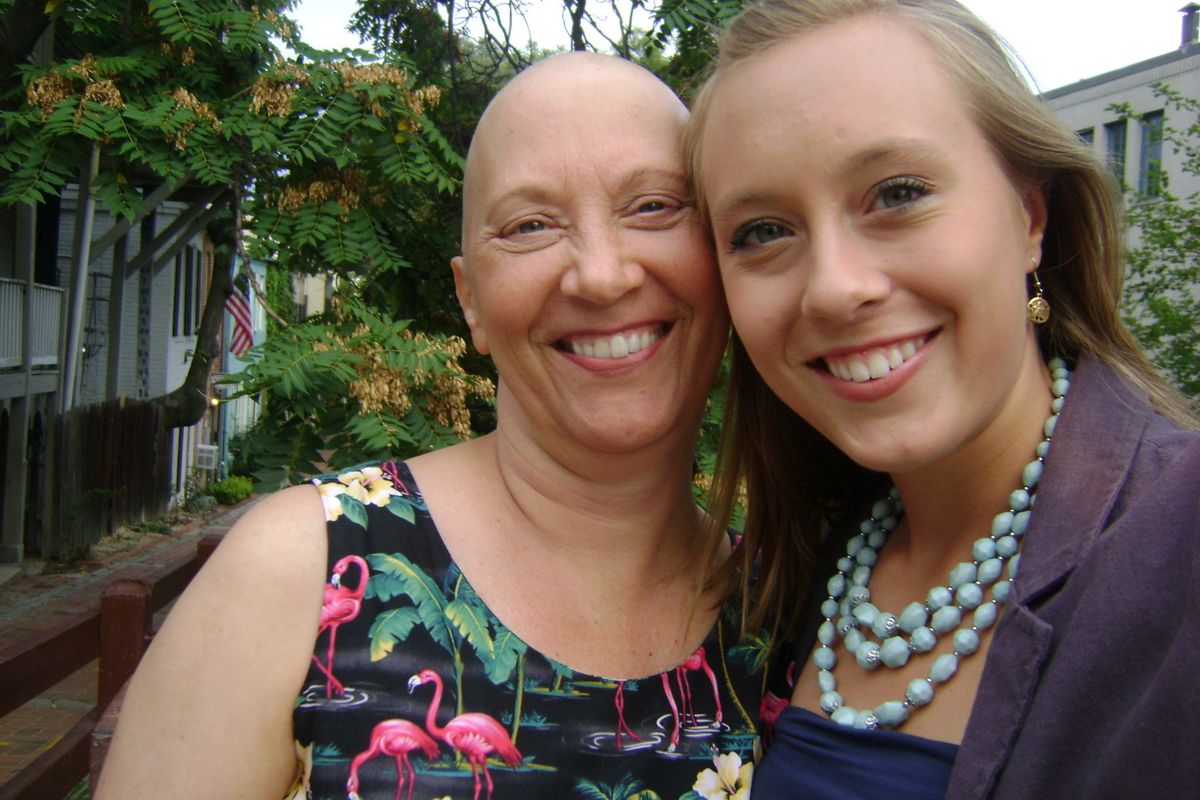By Marilyn Balcombe
Hi, I'm Marilyn Balcombe. I'm an active 52-year-old professional and community activist in a rural town in Maryland who was recently diagnosed with breast cancer. I have a great husband, Jonathan, and an active, wonderful 15-year- old daughter, Emily. While we live very busy lives, we take time to enjoy ourselves and each other.
Before my diagnosis, I had spent the last eight months getting ready to run for the local county council. Working every weekend, out most nights, writing my plan, shoring up my contributions, securing endorsements, I was on schedule for what hoped to be a mid-February announcement. Needless to say, that has gone to the back burner.
On January 26, I had my annual mammogram—just another errand to check off my "to do" list. But instead of the tech coming back and saying, "You're all clear," the radiologist came in to explain my abnormal results. I was stunned. I got on the phone and the whirlwind began.
I had a biopsy a week later. It was a small tumor, and I was hopeful I would have the results of the biopsy in about a week. I loved my surgeon, Pamela Wright, from the minute she took my shoulders, pulled me closer, looked me in the eye and said, "Whatever this is, it is small, and you will survive this."
I got the results the following Monday, sitting at my desk at work. I was shocked. I could not believe it. And I didn't know what to do. Do I continue working? Do I call anyone? How do I move forward? I called Jonathan, who works at home, to share the news and to ask where our daughter was. I had decided not to tell Emily too much too soon, but now it was time to talk to her. She was very sad and scared and wanted to know if I was going to die. I told her I didn't think I would but that I would have surgery and lengthy treatments to make sure that didn't happen. As she continued to cry, I let her know that I really needed her to be a strong member of my team. She accepted that challenge.
The next steps were to schedule an MRI, chest x-ray, pre-op physical, EKG—all during the blizzard of 2010. But we got it done, and my surgery was scheduled for February 18 at the Suburban Outpatient Center in Maryland. I felt very well cared for. I went in hoping for the best, but worrying about the worst.
I knew when I awoke from surgery that the best was a distant dream. The cancer had spread to my lymph nodes, but the surgery was successful (considering). The surgeon was optimistic that she took out the entire tumor with nice clear margins.
When the lab results came back, they showed that I had invasive ductal carcinoma, the most common type of breast cancer. It starts in the milk ducts and then spreads to surrounding tissues and can invade the lymph and blood systems. Cancer was found in three of the 18 lymph nodes my surgeon removed. The lab classified my cancer as stage II-a, grade II, HER2 negative, and estrogen/progesterone positive. My tumor was 1.8 centimeters, which is in the smallest category of tumors.
There was one more step—the toughest one, the scariest one. We had to find out if the cancer had spread to the other organs most impacted by breast cancer: bone, liver, lungs, brain. This would move me to stage V, which is considered incurable. I went for a bone scan and a liver and lung scan. A brain scan wasn't necessary because I showed none of the early symptoms that indicate brain cancer. The test results were the first good news I'd had since January 26: My other organs were all clear.
An unbelievable calm and peace came over me. I hadn't realized what a tremendous burden I was carrying until it was off my back. Now I could start treatment knowing that I would survive.
My treatment calls for chemotherapy in six 3-day cycles (TAC drug regimen), radiation therapy five days a week for six weeks and hormone therapy for five years. I will post regular updates as I go through treatments.
My prognosis is very good for both survival and non-recurrence. I feel blessed that I have the family, friends and resources I need to manage this. My plan is to continue my normal routine, knowing that I will have some good days and some bad days. I have a great medical team, led by oncologist Carolyn Hendricks, and I'm ready to face this head on.
I've been OK so far. The initial shock and disbelief carried me through the early days, and once I knew that it hadn't spread past the lymph nodes, I was able to absorb the reality of it all.
When my friends ask what they can do to help, I tell them that the first time they see me wearing my wig, they must tell me how absolutely fabulous it looks (although it's perfectly acceptable to let me know if my eyebrows are crooked). I also love hearing about long-term success stories.
Track Marilyn's journey…
A Gesture of Solidarity and Wig Shopping
Preparing for the Journey Ahead
Chemo Report
Chemo Ain't for Sissies
Move over Martha Stewart
Losing My Hair: I Love My New Do!
The Power of Unconditional Love
The Daily Grind
3 Down, 3 to Go
My First Setback
Life Goes On
Bald and Beautiful
11 Goddesses and 1 God!
The Bald Balcombe Family
Last One on Monday!
No More Chemo!
Good-bye Port, Hello Radiation
The Reality of Radiation
Beauty School Dropout
Moving On and Dancing in the Rain






